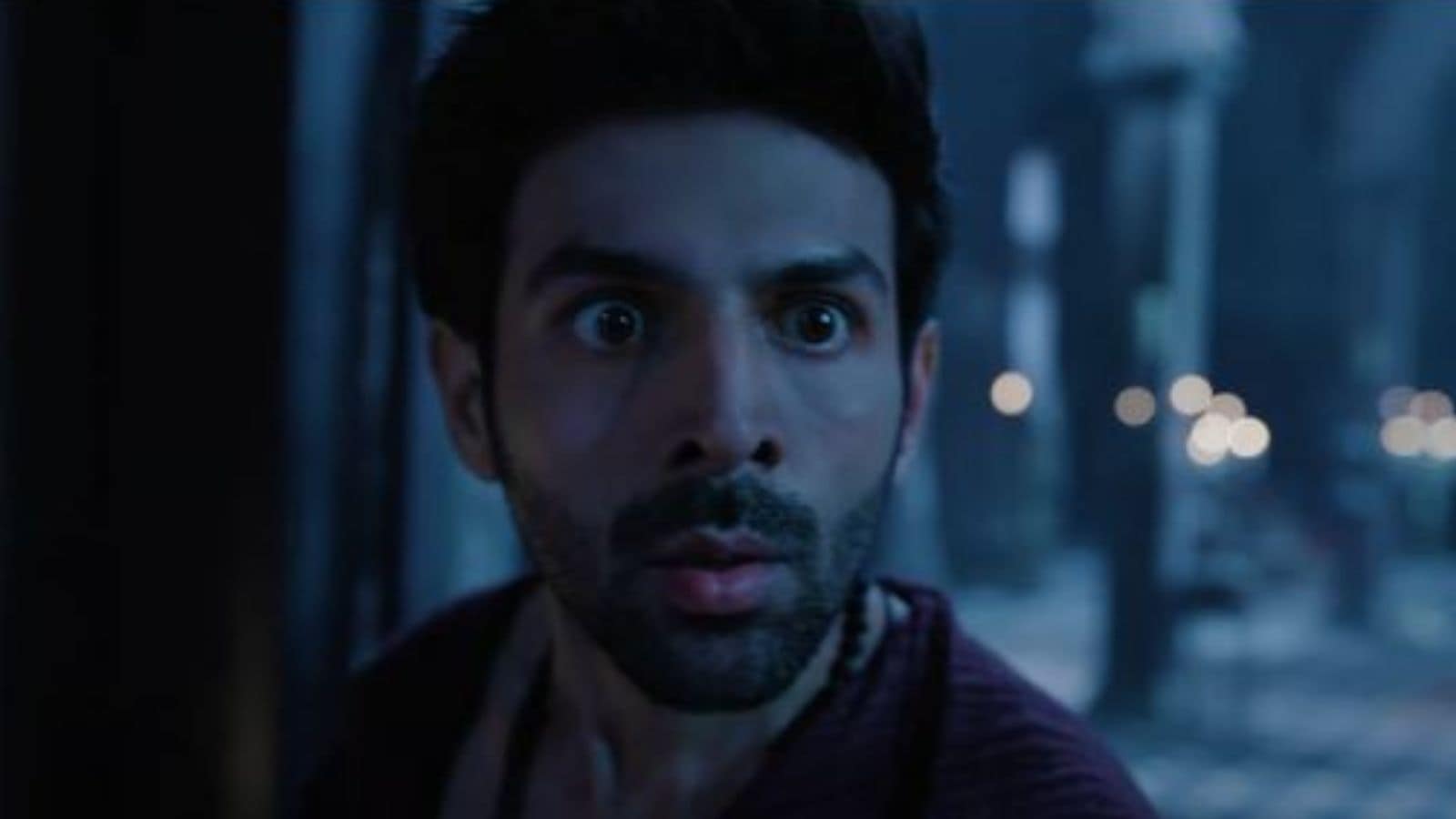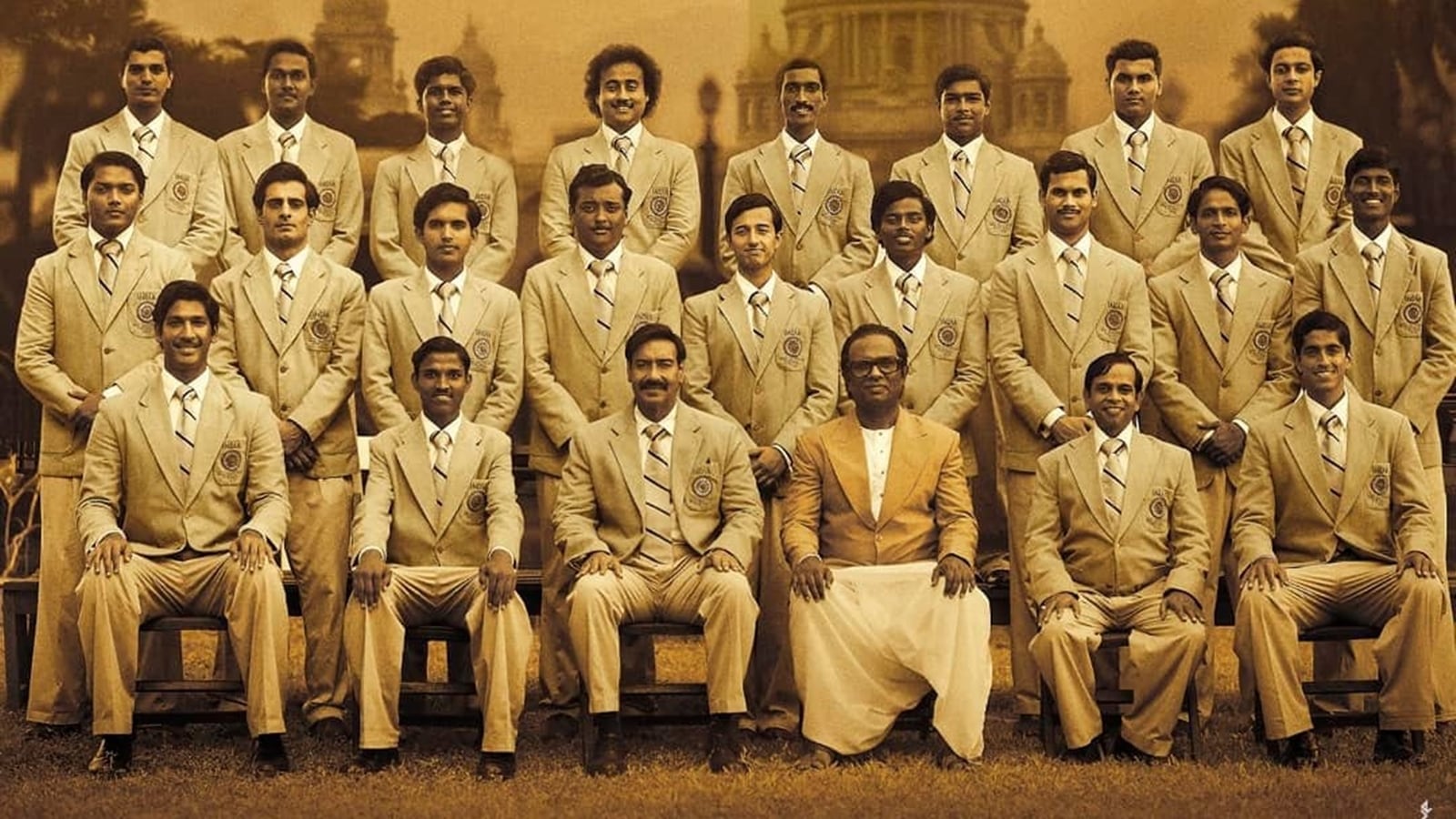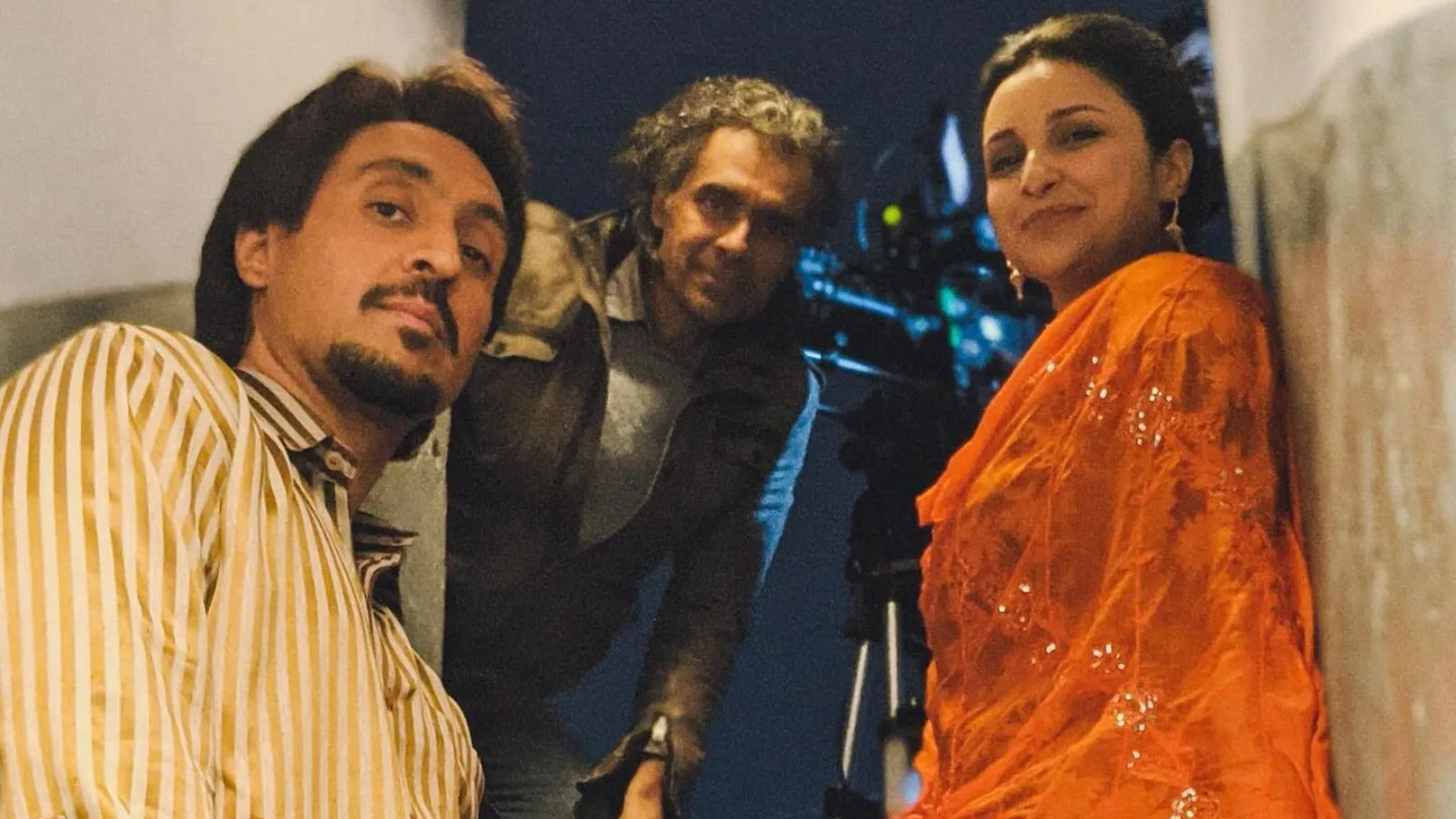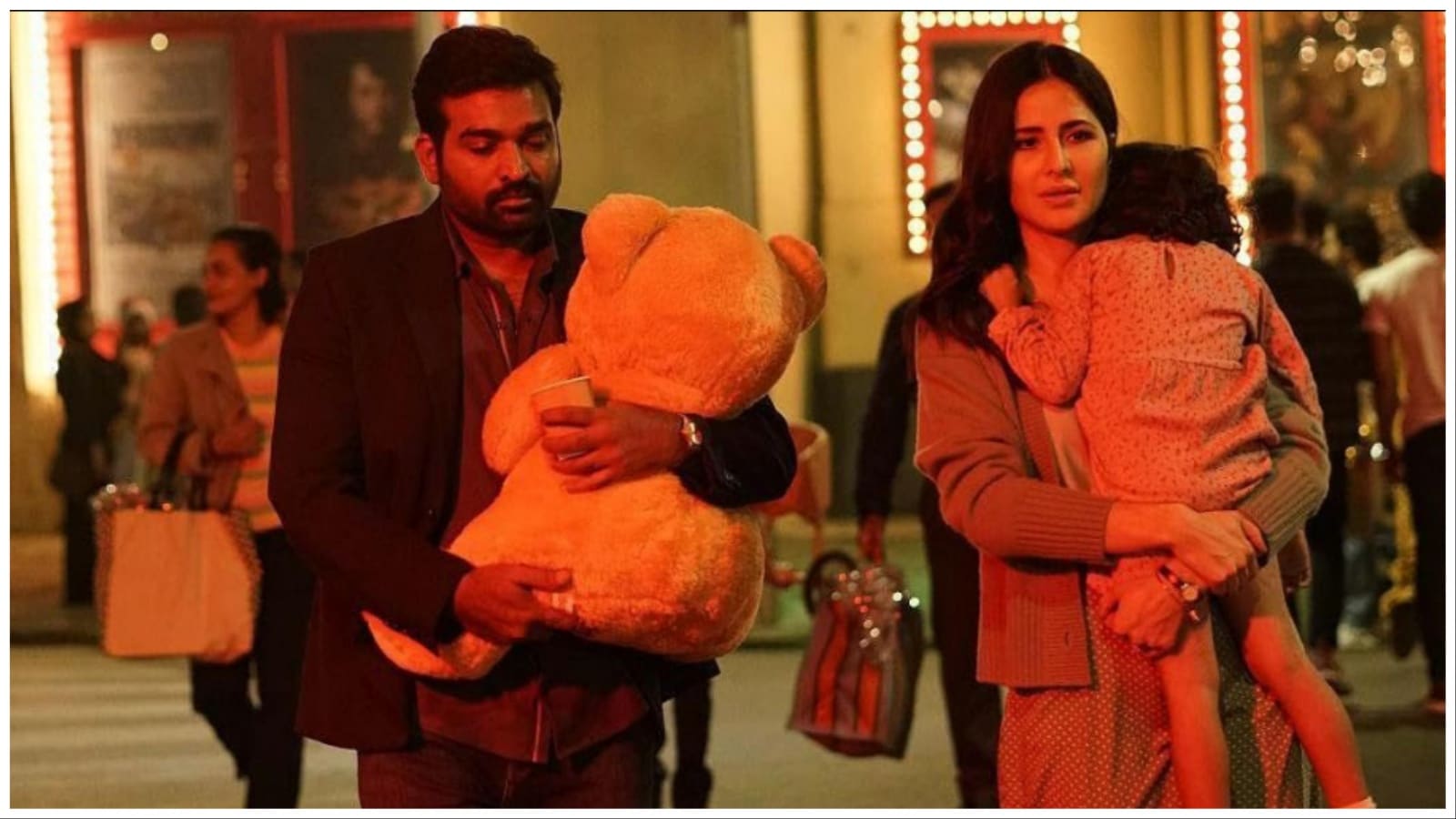Click here to follow Screen Digital on YouTube and stay updated with the latest from the world of cinema.
From Jigra to Bhool Bhulaiyaa 3: A year of Hindi cinema where climaxes reshaped stories
This year many film's climaxes stood apart. Narrative turns that unlocked buried truths, deepened unspoken nuances, and often reimagined the films entirely.
 The climax of a few film this year became its loudest echo.
The climax of a few film this year became its loudest echo.With each new gag, every jump scare, and every other reveal, Bhool Bhulaiyaa 3 collapsed further, shedding what little sheen one had hoped it would retain. The comedy felt contrived, the horror, hollow. You found yourself wanting for it to end. But then, out of nowhere, it played its wild card. A twist no one could have predicted. A climax unimaginable even in the most absurd corners of thought. It was garish, abrupt, and unapologetically tacky. Designed more for shock than sense. But, in that chaos, something unexpected emerged: a flicker of awareness. The film flipped not just its plot, but the entire franchise, unveiling Manjulika as a man (Kartik Aaryan) — a soul longing to be seen, to embrace a feminine identity, and to hold on to desires long suppressed. It was simply bewildering. A tightrope walk between sincerity and farce.
Was this earnest or just another cruel joke? All you know is that suddenly, the absurdity found purpose, daring to critique the very transphobia it had peddled until that moment. All you know is that it became a strange kind of subversion, testing how much mediocrity one might endure for a moment of thoughtfulness. And all you know is that beneath the tackiness, there lay a moment of thought, fragile but defiant, like a voice breaking through the noise.
 Kartik Aaryan in Bhool Bhulaiyaa 3. (Photo: T-Series/YouTube)
Kartik Aaryan in Bhool Bhulaiyaa 3. (Photo: T-Series/YouTube)
As expected, the climax became the film’s loudest echo. The plot point everyone returned to. The shock the makers had wagered on had struck its mark. Now, nobody could ignore it, and everybody had their two cents on it. But this wasn’t unique to Bhool Bhulaiyaa 3. It’s a rhythm that has defined Hindi cinema this year. A curious pattern stretching across the spectrum: The good, the bad, the ugly, the blockbuster, the disaster, the middling, and the mediocre. Each found its soul, strangely enough, in its ending. The climaxes stood apart. Narrative turns that unlocked buried truths, deepened unspoken nuances, and often reimagined the films entirely. These weren’t mere resolutions; they were metamorphoses. Moments that gave stories new shapes and unexpected gravitas. Consider Stree 2, the horror companion to Bhool Bhulaiyaa 3, but surpassing it in every way. Its climax thrums with political subtext. For it is, after all, a woman — a Stree — who will dismantle patriarchy. It subtly subverts the Padmaavat’s finale, as it envisions women, draped in resplendent red, not retreating into flames but unlocking doors, storming the streets, and standing face-to-face with the monsters — both tangible and symbolic.
Or take Dibakar Banerjee’s LSD 2. The year’s bravest, most layered, and most revolutionary film. An unrelenting force of invention. It shattered boundaries you couldn’t fathom, breaking rules you didn’t know existed. And then came the finale. Fifteen minutes that etch themselves into memory. Shubham (Abhinav Singh), a viral gamer, ascends to a meta-world, ruling a cult of his own. While a ravenous journalist (Gurleen) screams her way to an interview within this maze of artifice. Words flowed, but so much was left unsaid. Beyond a point, in the new India, myths and mechanisms often blur into one. Beyond a point, the state offers only a hollow assurance: “Main khush hoon.” And beyond a point, a journalist dances to that very refrain on national TV. It’s absurd and devastating. The present and the future folded into one. The internet as both progress and regress — or is there a difference? Life flutters between the surreal and the real. But can you tell the line between them? D stands for download, and it also stands for dhoka. The question is, does it even matter?
Another screen-life thriller that drives the discourse forward but shifts to a more personal realm is Vikramaditya Motwane’s CTRL. It ends in a tragedy none foresaw. In its final act, the film changes tone, moving from screens to the inner world of Nella (Ananya Pandey). Having lost her boyfriend to an AI scam, she turns to the very device that caused her loss to recover him. In the warmth of the screen, once the source of her fame and the spark of her love, she finds solace. The AI avatar resembles him, but the moment he speaks, the illusion shatters. But was their love ever real, even when it was? Motwane hints at a love story that never existed. Only screens and their fleeting glow. Similarly, another brilliant thriller, Atul Sabrawal’s Berlin, builds incessantly, only to end on a tragic note. It too suggests that the truth we perceive might never exist. For so much of it is shaped by those within, who control what is seen, heard, and told to the outside world.
This impulse to challenge our perceptions, to expose the truths we thought immutable, shines through Hansal Mehta’s The Buckingham Murders. After a series of missteps and aimless wandering, it finally comes together in the final fifteen minutes. A twist that showcases Mehta’s mastery when fully in command of his material. In a moment, he exposes the truth to both his protagonist (Kareena Kapoor Khan) and the audience. Truths beyond prejudices that had long evaded recognition. It was a moment of impeccable screenwriting, (thematically reminiscent of Maggie Gyllenhaal’s The Lost Daughter), where Mehta fuses social commentary with the structural demands of a murder mystery. Similarly, Kabir Khan finally finds his voice in the climactic moments of Chandu Champion. His strength has always been in redefining cliches, and he does so brilliantly in the final swimming race, where Murlikant (Kartik Aaryan) relives his life in a flashback as he nears victory. It’s a powerful sporting moment for a man who has long struggled to escape the grip of past failures. But this time, he moves forward, beyond the weight of his trials, into a triumph that transcends his past.
 Maidaan, directed by Amit Sharma, is based on the life of Syed Abdul Rahim, a former Indian football coach. The film explores Rahim’s career as a coach and his contributions to Indian football.
Maidaan, directed by Amit Sharma, is based on the life of Syed Abdul Rahim, a former Indian football coach. The film explores Rahim’s career as a coach and his contributions to Indian football.
Another sports drama that delivers a climax so powerful it elevates the entire film to the realm of world-class cinema is Maidaan. In this moment, the lines between reality and fiction blur increasingly, as every player, and even the filmmaker Amit Sharma, rises above what had been a mediocre narrative all along. They run and run, each stride carrying them towards the goal, as if to strike a final blow against the limitations that had bound them all along. Though they arrive late to the game, their effort becomes a thrilling act of pushing the very grammar of sports filmmaking. Mr. and Mrs. Mahi also informs an intriguing subtext in its final moments. One that subtly transforms the film, reshaping it entirely. The reading then becomes one of an outsider (Rajkumar Rao) versus an insider (Janhvi Kapoor), exploring how the former is blind to his mediocrity, while the latter remains unaware of her untapped potential. And in its conclusion, the film finds grace — a son, in an act of redemption, embraces his father (Kumud Mishra), accepting his fate and, in turn, coaxing him to accept his own.
A similar yet different moment occurs in Varun Grover’s debut feature All India Rank, where, a father (Shashi Bhushan) comes of age, offering his son (Bodhisattva Sharma) the long-needed assurance that life extends far beyond the boundaries of an exam. It’s no surprise, then, that earlier in the film, a character references the famous song “Papa Kehte Hai Bada Naam Karega.” Grover, a master lyricist in his own right, takes this iconic anthem and, in a quiet reversal, strips it of its meaning. In the closing moments, the father’s words, heavy with love and wisdom, serve as a reminder: His pride is inconsequential, in front of the life that awaits his son. Shuchi Talati too crafts a moment of genuine greatness in her debut Girls Will Be Girls where two generations of women — a mother and daughter, both bruised and abandoned by love — find solace together on a sunlit rooftop. In their shared space, warmth blooms, tears fall, and closure is found. It is here that the audience understands: The true love story was always between them.
 Imtiaz Ali poses with Diljit Dosanjh and Parineeti Chopra. (Photo: Diljit Dosanjh/ Instagram)
Imtiaz Ali poses with Diljit Dosanjh and Parineeti Chopra. (Photo: Diljit Dosanjh/ Instagram)
Chamkila’s (Diljit Dosanjh) love story with his listeners reaches a poetic crescendo in Imtiaz Ali’s Amar Singh Chamkila. Vida Karo, arguably the year’s most haunting song, is more than an elegy; it is also more than a political statement by Ali — it is a confessional cry from a singer. Like a true artist, Chamkila doesn’t seek to overwhelm with harsh words. There is no anger, only the quiet ache of a man who has been misunderstood, seeking a simple, honest farewell from an audience that never truly listened. In Jigra, a sister (Alia Bhatt) refuses to turn away from the haunting cries of her unlawfully arrested brother (Vedang Raina). Her love becomes a force of nature — moving heaven and earth, shaking a nation to its core, storming into the heart of a prison to bring him back. In a staggering climax, she runs through alleys, leaps through the skies, her desperation defying gravity itself. It is a moment of raw, solid conviction. For him, she would fly. And she does. For him, she would tear the world apart. And she bloody well does. For him, there is nothing she cannot do.
Just like in Jigra, Kill ignites with raw vengeance as a soldier and lover (Lakshya) brings an entire train to a halt, consumed by fury when his beloved is mercilessly taken from him. In a film where every punch lands harder, every kill grows more brutal, and every set piece surpasses the last, it’s nearly impossible to single out a moment. But it comes, searing in its final hand-to-hand combat. A man is engulfed in flames, and even the nemesis (Raghav Juyal) senses the inevitability of his end. No longer fighting but almost taunting his own demise. This is action at its finest. Not for its sheer spectacle, but because every blow, every kick, every punch, is rooted in the aching depth of lost love. Lost love (and ladies) finds its way home in Kiran Rao’s heartwarming Laapataa Ladies, as Phool (Nitanshi Goel) finally steps onto the right platform, reuniting with Deepak (Sparsh Shrivastav). It is a moment steeped in the essence of Hindi cinema: Where love and liberation often meet amidst the rhythm of departing trains. Though we’ve come a long way from Dilwale Dulhania Le Jayenge, the most soulful reunions still find their heartbeat at train stations — where journeys end and destinies begin.
 Katrina Kaif and Vijay Sethupathi in a still from Merry Christmas.
Katrina Kaif and Vijay Sethupathi in a still from Merry Christmas.
Destinies are gently reshaped with a touch of magic and an undertone of hope in the year’s best film, All We Imagine As Light. Its final act feels like a dream that lingers long after the credits fade. A flicker of magic graces the lives of its three protagonists, and as they sit by the sea, bathed in a soft, glowing light. The camera pulls away, the world recedes. But a part of you stays there with them. Rooted, wanting for their stillness to stretch into eternity. To keep imagining. To keep loving. It’s also precisely this realisation Albert (Vijay Sethupathi) comes to in the closing moments of Sriram Raghavan’s Merry Christmas. A breathtaking climax that ranks among the finest in recent memory. In a masterstroke, the filmmaker discloses that he’s been crafting a love story all along. A confession transforms into a proposal, and Albert grasps the moment he has chased all his life. This is the love he will never find again. And so, he loves deeply and sacrifices even deeper. Because in love, sacrifice is the currency of its truest expression.


Photos


- 01
- 02
- 03
- 04
- 05





























